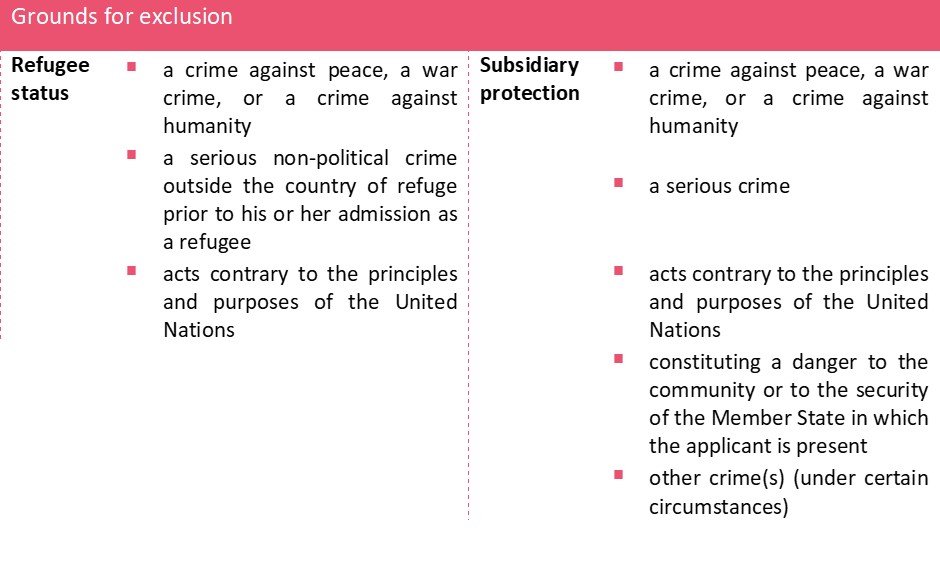Applying the exclusion clauses, where there are serious reasons to consider that the applicant has committed any of the relevant acts, is mandatory.
Exclusion should be applied in the following cases:

It should be underlined that the determining authority has the burden of proof to establish the elements of the respective exclusion grounds and the individual responsibility of the applicant, while the applicant remains under an obligation to cooperate in establishing all facts and circumstances relevant to his or her application.
In the context of Syria, various circumstances may require consideration of the potential applicability of exclusion grounds. The QD does not set a time limit for the application of the grounds for exclusion. While the focus in this chapter is primarily on the recent events, it should be highlighted that applicants can be excluded from international protection for acts committed in the more distant past (e.g. during the Syrian Occupation of Lebanon (1976-2005) or in the context of the Muslim Brotherhood Uprising in Syria (1979-1982), or based on their involvement in other excludable acts of the Syrian regime). In the context of the different conflicts since 2011, most actors have been widely reported to engage in actions which may lead to exclusion.
The following subsections provide guidance on the potential applicability of the exclusion grounds in the context of Syria, including:

